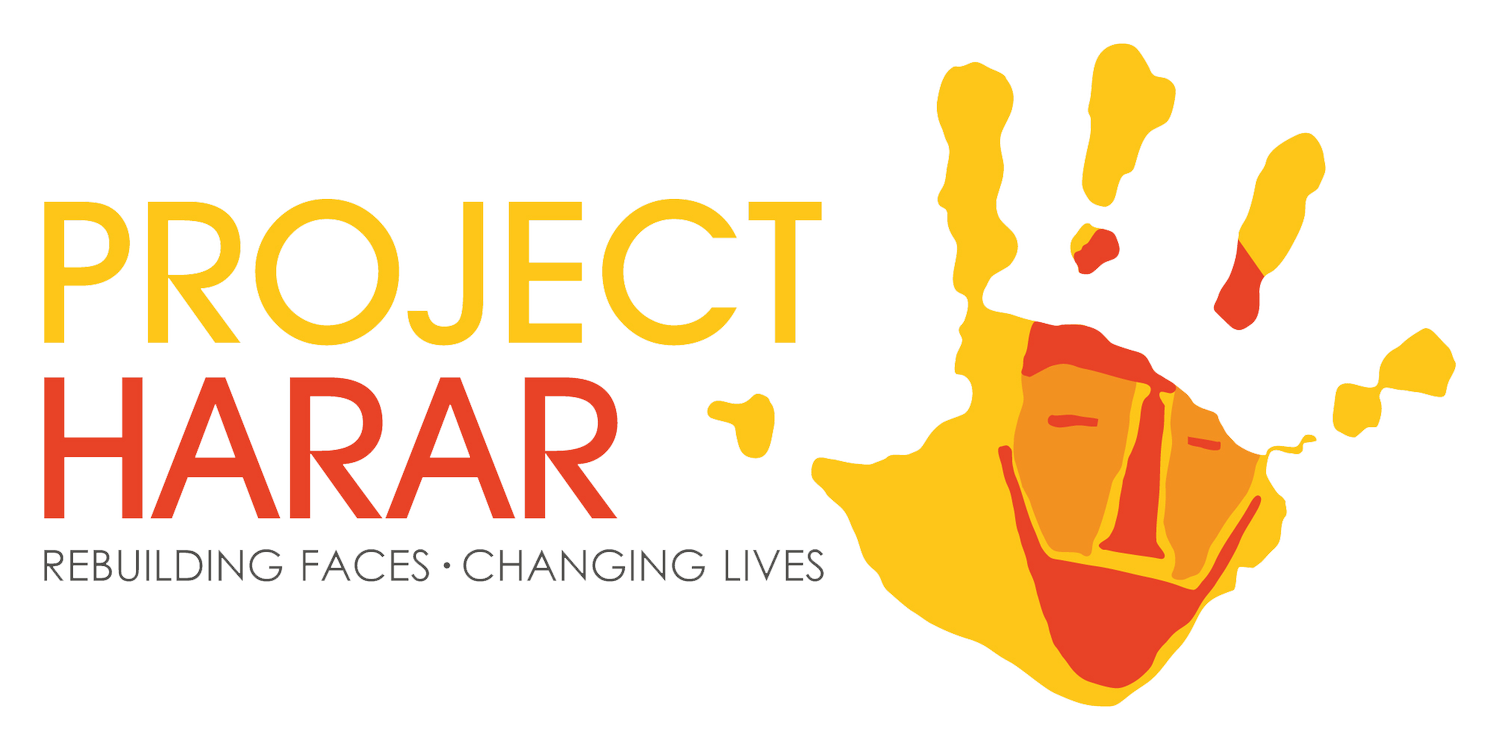SUMAYA’S STORY
Sumaya, a seven-year-old girl from the Arsi Zone, accompanied by her father, came to Ethio Tebib Hospital in Addis Ababa to undergo cleft palate surgery. She previously received cleft lip treatment from Project Harar and has returned for the second time to receive surgery for her cleft palate.
Her father tells us about her birth and the difficulties she faced. “when she was born, they told me she had this condition, it was hard, I started crying, and I didn’t understand why, I was so excited to have a daughter, but she had to feed her with other milk.’’ Babies with cleft lip and palate often struggle to breastfeed as they cannot create a seal for suction, this means that the child can become undernourished, which is not only dangerous for their health but also incredibly distressing for the parents. Project Harar runs breastfeeding awareness courses and provides nutritional support to families to alleviate the difficulties until surgical treatment is an option.
Sumaya’s father expressed his satisfaction and gratitude for the treatment provided to his daughter. He believes that by sharing their positive experience, others in similar conditions who have not yet received treatment and are currently hidden in rural areas or villages can also benefit from these services. He expressed his intention to serve as “a spokesperson for Project Harar Ethiopia, spreading information and awareness about the availability of this treatment in my local community, kebele, and woreda.”
Sumaya’s father goes on to share with us the stigma and isolation that his daughter has experienced as a result of her cleft condition. “My child is afraid of speaking in groups and also in family situations because of being teased by other children. I am so very sad for my child because children avoid playing with her and because she is always alone. Sumaya often hides because people laugh at her & often asks me why this happened to her”.
Sumaya’s experience is not uncommon, the stigma surrounding a cleft lip can have a significant negative impact on a child’s development and mental health.
Children with facial differences are commonly ostracised from society, resulting in feelings of isolation, reduced self-esteem, and emotional distress, impeding their overall well-being and hindering their ability to thrive and engage fully in social interactions. Receiving surgical treatment is not only crucial for improving their physical health, it also has a positive impact on their social wellbeing, enabling them to go school, church and make friends.



